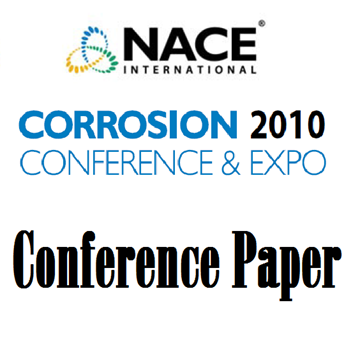Search
09457 Wireless and Remote Monitoring of Coated Surfaces in Corrosive Environments
Also Purchased
05135 CP Data Management Software, Field Computers and Remote Monitoring Facilitate Cathodic Protection System Commissioning
Product Number:
51300-05135-SG
ISBN:
05135 2005 CP
$20.00
09228 Degradation of Steel Girder Bridge Bearing Systems by Corrosion
Product Number:
51300-09228-SG
ISBN:
09228 2009 CP
Publication Date:
2009
$20.00
10028 Implementing Remote Wireless Monitoring of Pipeline Integrity and Cathodic Protection
Product Number:
51300-10028-SG
ISBN:
10028 2010 CP
Publication Date:
2010
$20.00




